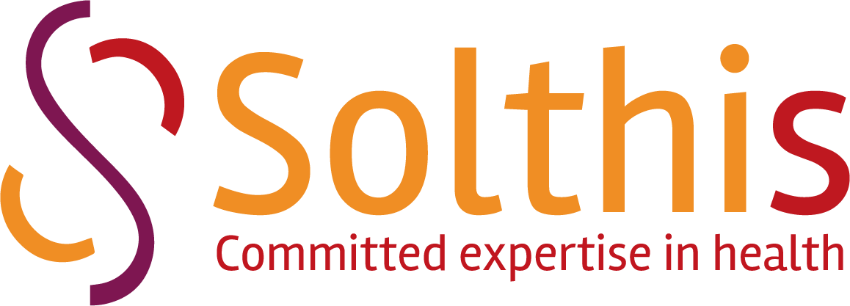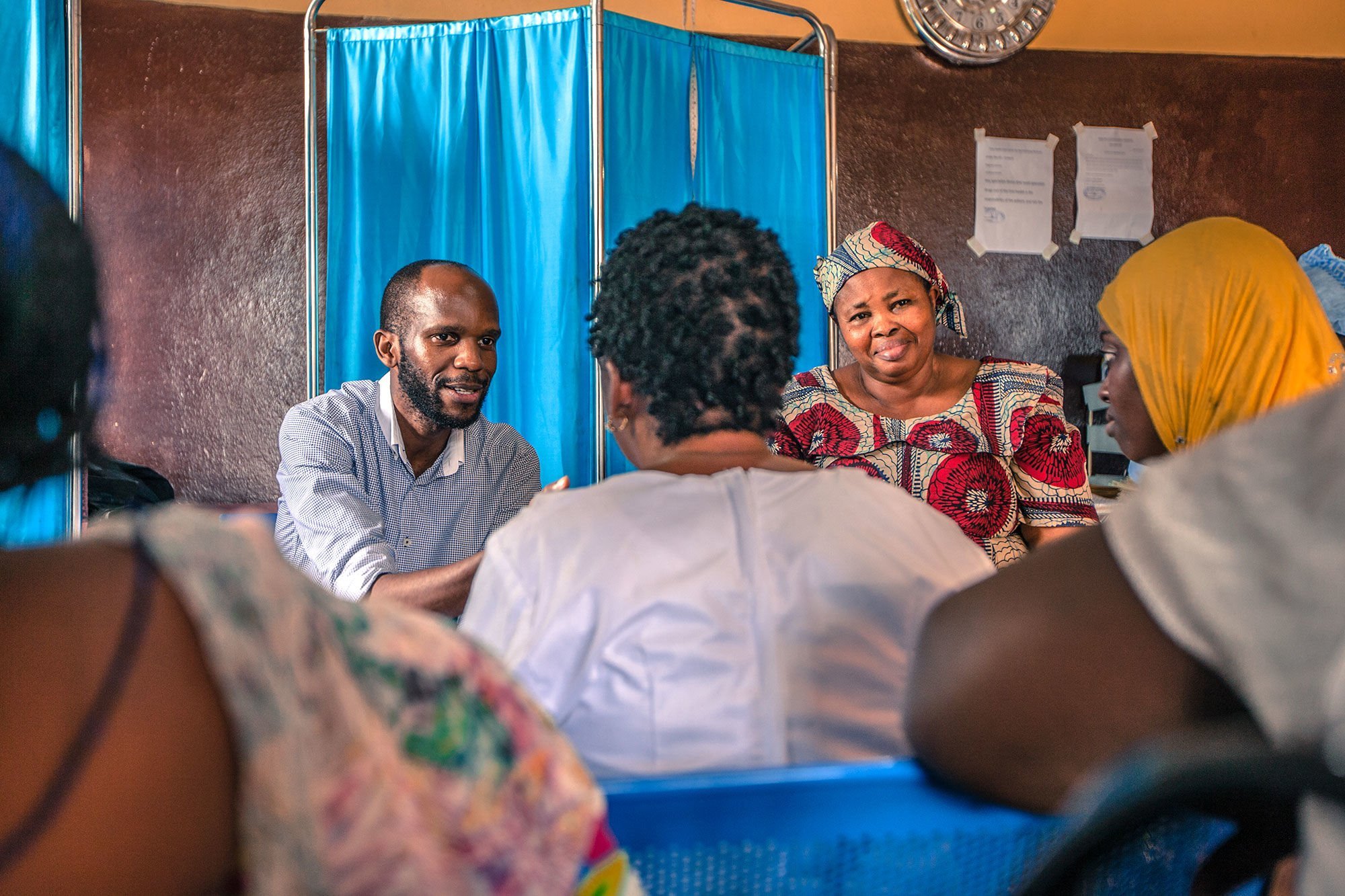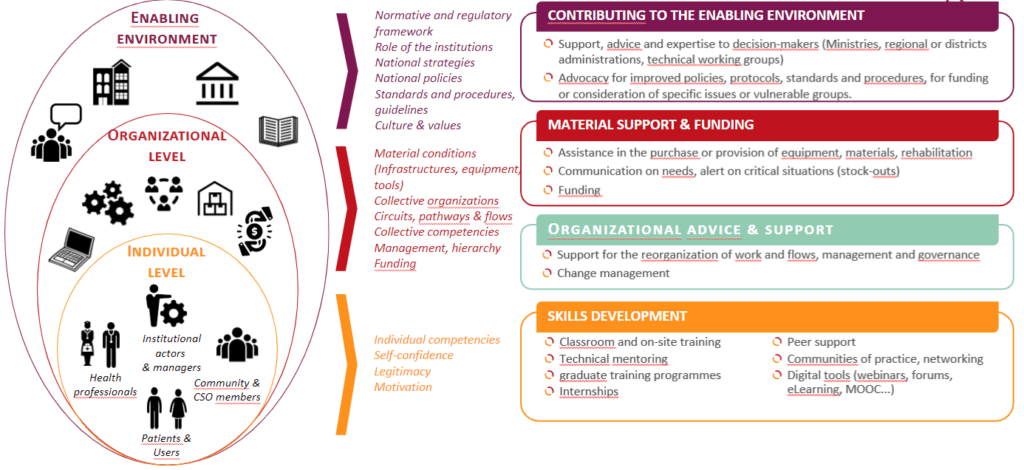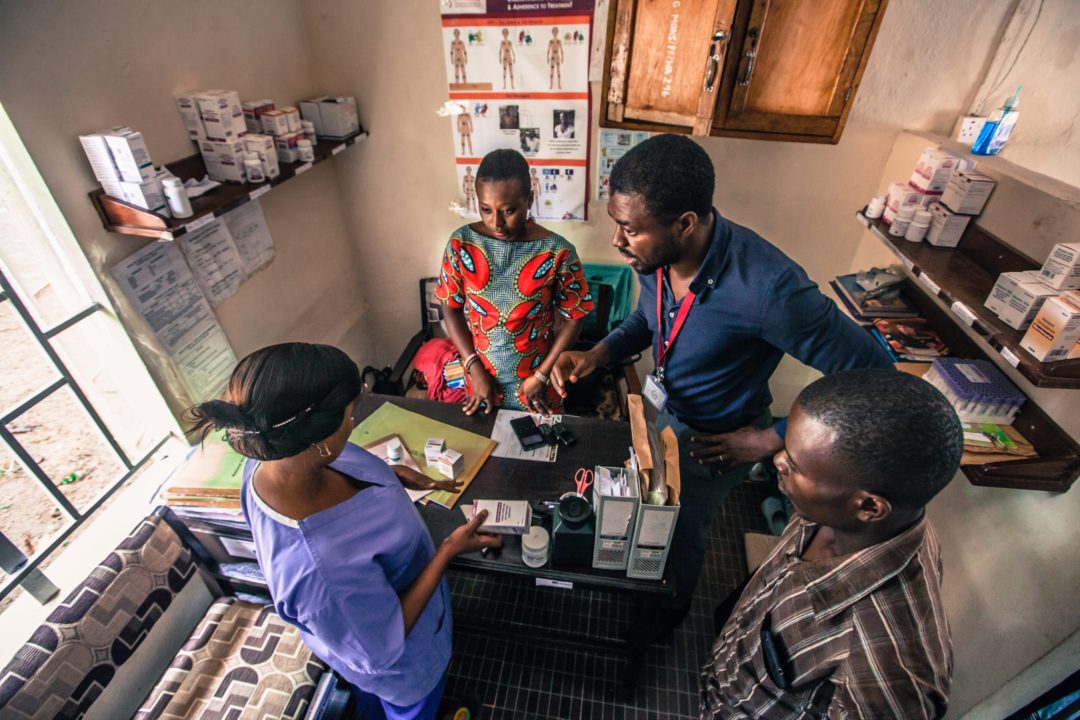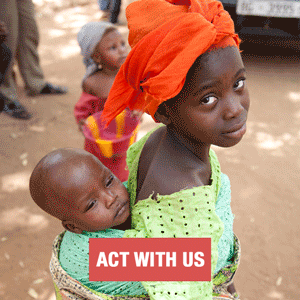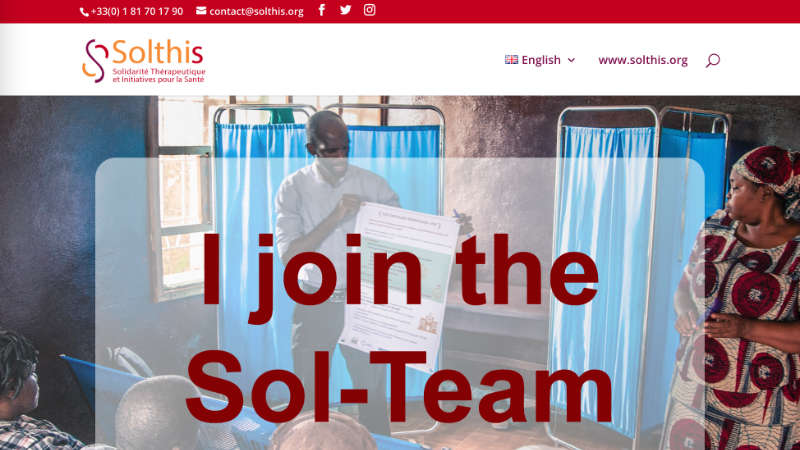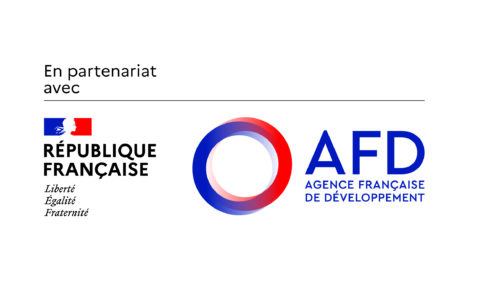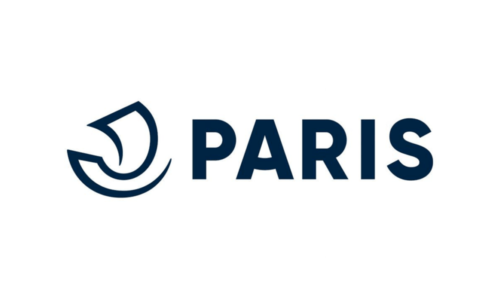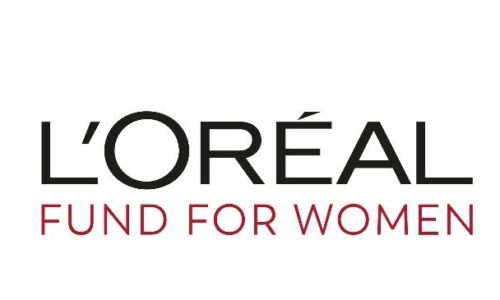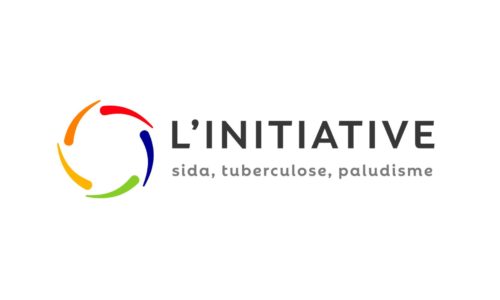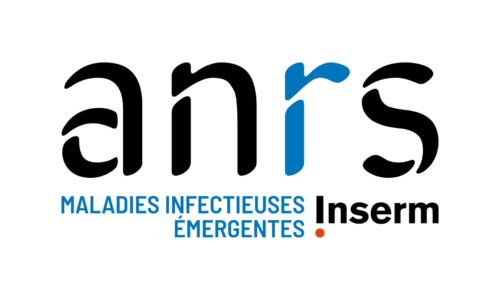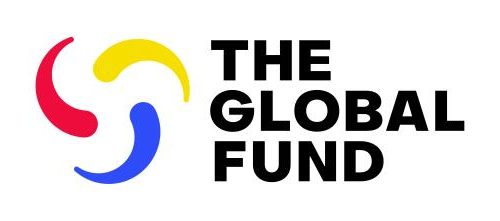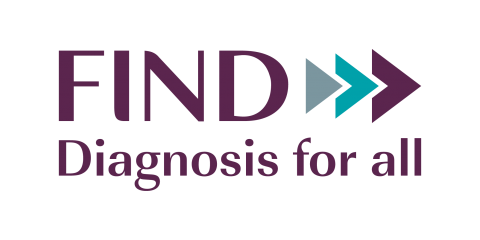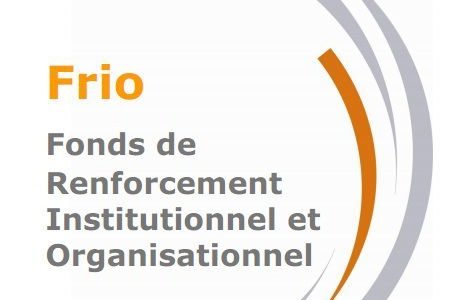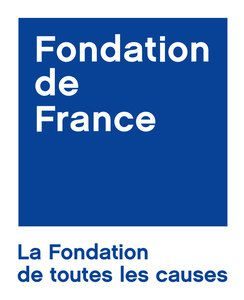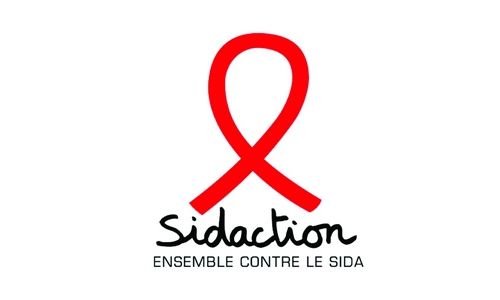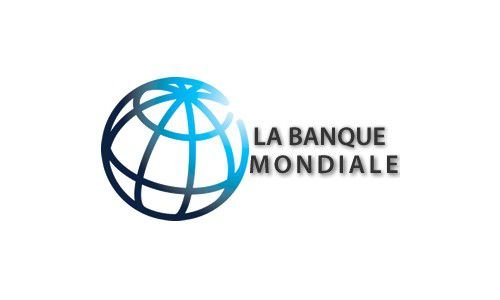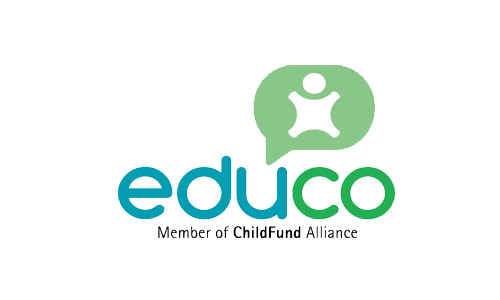In line with our principle of non-substitution, Solthis focuses on supporting local structures and stakeholders by strengthening their skills and functioning in order to promote their empowerment and the sustainability of their interventions. As illustrated in this diagram, capacity development at Solthis is a continuous support and learning process and is conceived as a global approach targeting several levels: individual, structural and national.
Thus, Solthis roots its strategy in the following definition: “Capacity development is a long-term process that improves the ability of an individual, group, organization, or ecosystem to generate positive change and function better to improve health system outcomes” (Management Sciences for health, Challenges in capacity development, April 2010).
Participative capacity building
As described in our partnership approach, we involve health actors in our interventions to “do with” and not “do for”, so that they take ownership of the interventions and associated changes and ensure their sustainability, at all stages of project planning. For capacity development, this is done at different levels, drawing on methods for continuous quality improvement in health services:
- diagnose existing capacities (using a participatory approach to identify needs, thus promoting ownership by the concerned actors);
- build collectively solutions;
- implement together selected solutions to strengthen skills, improve the organisation and material work conditions;
- monitor the implementation of changes and analyse the evolution of health care data and quality indicators;
- evaluate the impact of the implemented changes on the improvement of quality care.
This action contributes to the empowerment of peers and users to make informed choices in favor of their own health. We act on the particpation level of users in our projects, on the reinforcement of their technical skills, but also on the reinforcement of psychosocial skills (self-esteem, self-confidence, ability to manage conflicts and overcome obstacles etc.). In order to achieve these objectives, we organize workshops to raise awareness of social representations, conduct participatory diagnoses and collective workshops (self-support groups, health education, literacy workshops, creation of pedagogical tools, etc.).
In addition, it is crucial to align capacity building at the organizational and individual levels with national policy, strategy, institutional and normative guidelines. To do this, we develop technical assistance activities, providing support, advice and expertise to political leaders (ministries of health, regional directorates and technical groups) and advocacy actions, particularly for the improvement of national standards and procedures. This global approach favors the emergence of favorable conditions for the improvement of professional practices, quality and performance of health services.
Focus on Technical Assistance (TA) at Solthis
The technical assistance provided by Solthis aims to meet the needs of countries in terms of technical expertise. Solthis seeks to develop this modality of intervention by mobilizing internal and external human ressources. We have been recognized for our expertise for over 15 years. We have a pool of more than 500 experts (including Solthis employees). The areas of expertise are identical to those used deployed in our projects. We provide support at all levels of the health pyramid, working on both the supply and demand sides of the health system. We intervene to support the design, implementation and monitoring-evaluation of the various health system components, taking into account national specificities.
Thus, in complementarity with ongoing projects and programs, technical assistance aims to strengthen the effectiveness and impact of national programs. Here again, we act in line with our no-substituion principle to strengthen our partners’ autonomy.
Discover our current technical assistance projects.
